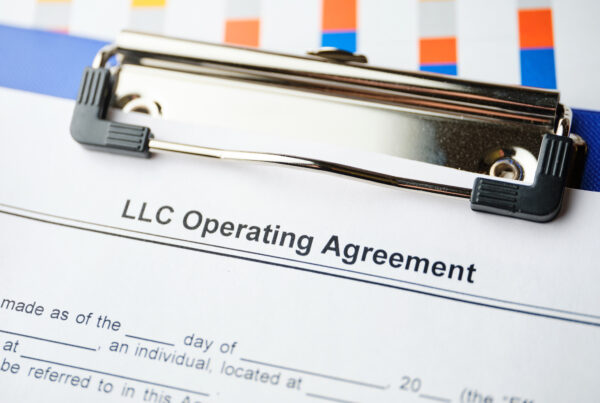The term “intellectual property” (IP) can confuse small business owners. Your intellectual property is essentially the identity of your business and brand, and it’s crucial to protect it at all costs. Read on to learn more about what IP means, what falls under the umbrella of intellectual property, and how to protect intellectual property.
What Exactly Is the Intellectual Property of Small Business?
Your intellectual property consists of the intangible assets in your business. Examples of intellectual property include designs, automated processes, names—basically, your brand.
Protecting your intellectual property is essential because it can boost your ROI and extend your brand’s reach. Imagine if a competitor somehow used a similar design or copied your business model. You would be hurt, angry, and agitated. But if your intellectual property isn’t protected, your competitors can do whatever they please legally and freely.
Why is IP Protection Important for Small Businesses?
For small business owners, IP protection directly impacts your bottom line in several ways. First, it provides business identity theft protection by differentiating your brand from your competitors. When competitors cannot easily copy your unique style and offerings, you maintain an advantage that sets you apart in the eyes of your potential customers.
Second, protected IP enhances the value of your business. Intellectual property is an asset that potential buyers and investors would both take into consideration. Your IP portfolio can contribute a sizable portion of your business’s overall worth.
Third, protecting your IP allows you to license your trademarks, patents, or copyrighted materials to other businesses while retaining ownership. This can create additional streams of passive revenue.
Finally, IP protection provides a measure of trustworthiness in the eyes of your customers. People tend to associate registered trademark symbols with quality and reliability, which can boost your business.
How to Protect Intellectual Property
There are a few proven ways to protect intellectual property. Once you do, your intellectual property rights will protect you from theft. Your IP is yours, and if anyone simulates or copies you, you can proceed with legal action.
1. Invest In Digital Intellectual Property Protection Measures
It’s unfortunately very easy for thieves to steal your intellectual property online. It’s a good idea to invest in automated monitoring tools that can track any use of your materials across the web.
2. Protect Intellectual Property Rights With Copyrights, Patents, and Trademarks
There are three main types of intellectual property protection: trademarks, copyrights, and patents.
A trademark (™) protects your brand from competitors copying your design, logo, and other intangible assets. You can trademark slogans and any of your brand identifiers that are unique to your business. A trademark covers things like:
- Taglines
- Brand colors
- Product and company names
- Symbols and logos
Before applying for one, however, you should thoroughly research to ensure you’re not copying a competitor unintentionally.
Copyrights and patents are two additional ways to protect your small business’s intellectual property rights. A trademark can cover mainly intangible assets for your SBO, but a copyright (©) covers your tangible assets, too.
A copyright is used to protect any original creative work. You can copyright things like:
- Website and blog content
- Training materials
- Workbooks and guides
- Books and ebooks
- Photos, graphics, images, and other art
A patent (℗) is another viable idea if you’ve created something unique, and it legally protects the intellectual property rights to your invention or idea. You can patent inventions as well as designs, and you will have exclusive rights to manufacture, use, or sell your creations for a specified period of time.
3. Register Business, Product, and Domain Names
You may have a domain and website, but you need to ensure they are registered. Once you have a registered domain, it’s difficult for others to copy your URL string, although they can purchase something similar. If you have a unique product name, you should also register that.
It’s also important to claim your brand name on all social media platforms, even if you don’t yet have a presence there. Create accounts using your company name and any similar alternatives to prevent scammers from impersonating your business.
4. Draw Up Confidentiality, Non-Disclosure, and Licensing Contracts
Non-disclosure agreements are relatively standard for new hires and are used to protect intellectual property rights in small businesses.
These agreements prevent employees (and consultants and vendors, if you choose) from discussing the intricacies of your business and business operations with anyone else. If they do, you can pursue legal action, as an NDA is an official document.
5. Avoid Joint Ownership
Joint ownership of intellectual property often creates complications that make it challenging to secure your IP. When multiple parties share ownership of a particular asset, each owner has the right to use, license, or sell their share without needing consent from the other owners.
Be sure that any work-for-hire contracts stipulate that you retain sole ownership of intellectual property rights to the completed works, even if you grant access or licensing rights to others.
Mistakes to Avoid When Managing Intellectual Property
There are a few key mistakes to avoid when managing your intellectual property. For one, you should never assume that just because you created something, you are protected from theft. Registering your copyright, trademark, or patent will strengthen your legal protection and enable you to receive damages if infringement occurs.
In addition, you should not wait to file applications for your patents or trademarks. Patents work on a “first to file” basis, which means a delay could result in losing your patent to a competitor with a similar application.
When to Consult a Lawyer or IP Professional
Your intellectual property is one of the most authentic assets in your business. It showcases who you are, what you do, what you offer, and why you’re attractive. It’s imperative to protect it. Unfortunately, filling out patent applications and trademark forms can be slightly confusing.
To ensure everything is done correctly and that protecting your IP is seamless, consider hiring a lawyer or a small business consultant who can help you navigate the complex aspects of intellectual property protection. While there are step-by-step instructions to apply for a patent, trademark, copyright, or other protection, you can breathe easier knowing a professional is there to check all the boxes.
Intellectual property protection is essential for a business owner. By implementing these strategies, you can safeguard your assets, increase the value of your business, and build brand recognition and credibility that lasts.
Want to learn more about ensuring the longevity of your small business? Sign up for my weekly blog posts to learn more about important business and management topics.
Coach Dave
- How to Protect Intellectual Property as a Small Business Owner - September 11, 2025
- What do General Managers do, and What are the Roles and Responsibilities of a GM? - September 4, 2025
- Why You Should Develop Content Monetization Strategies for Your Business - August 28, 2025


